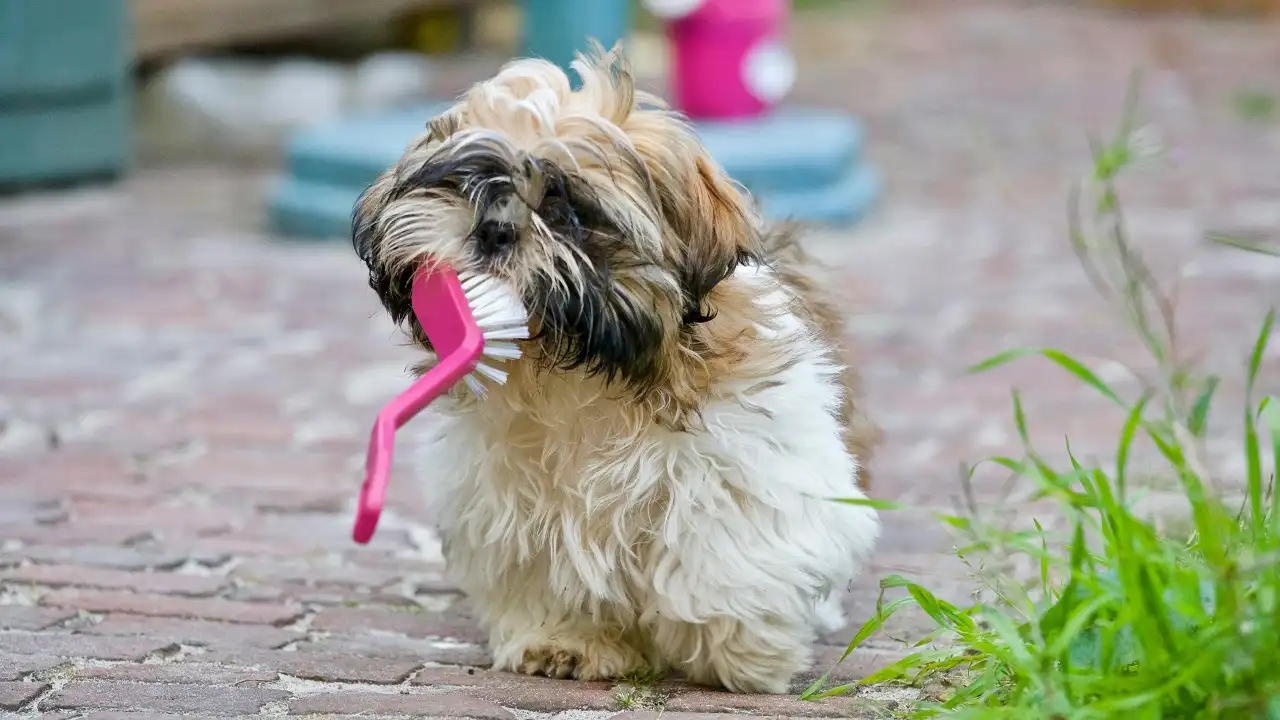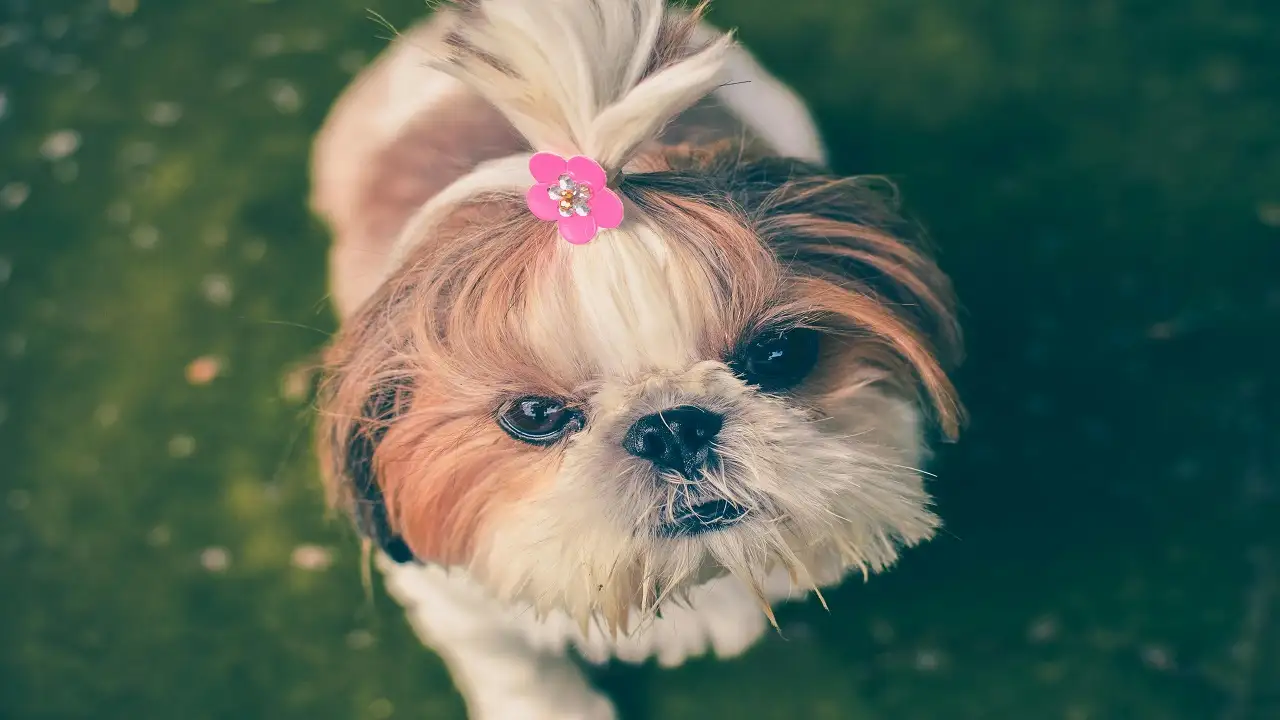Why Grooming Your Dog is Crucial for Their Health and Hygiene:
As dog owners, we have a responsibility to ensure that our furry friends are healthy and happy. One of the key aspects of maintaining their overall well-being is through proper dog grooming. Grooming not only helps keep your dog looking clean and presentable, but it also has numerous health benefits. In this article, we will explore the importance of dog grooming, as well as provide some preventive care tips and general health advice for your beloved pet.
Importance of Dog Grooming:
Grooming plays a vital role in promoting the overall health and hygiene of your dog. Here are some reasons why regular grooming should be a part of your dog’s routine:
1. Prevents Skin Problems:
Regular grooming allows you to regularly inspect your dog’s skin for any signs of irritation, sores, or infections. It helps to remove dirt, debris, and dead hair that can clog the pores and lead to skin problems. By maintaining a clean and healthy coat, you can minimize the risk of skin allergies, hot spots, and other dermatological issues.
2. Controls Shedding:
Almost all dogs shed, but some breeds shed more than others. Regular brushing helps remove loose hair and reduces the amount of hair your dog sheds around your home. It also helps to prevent the formation of mats and tangles, which can be painful and potentially cause skin infections or circulation issues.
3. Promotes Healthy Coat Growth:
Regular grooming stimulates the production of natural oils in your dog’s skin and spreads them throughout the coat. This helps keep the coat moisturized, shiny, and healthy. Additionally, it improves blood circulation to the hair follicles, promoting healthy coat growth.
4. Maintains Proper Ear Health:
The ears are one of the most sensitive areas for dogs, and they require regular attention. Without proper grooming, your dog’s ears can become a breeding ground for bacteria, leading to infections and other painful conditions. Cleaning and inspecting your dog’s ears regularly helps prevent these problems and ensures their overall ear health.
5. Prevents Dental Issues:

Dental hygiene is crucial for dogs, just like it is for humans. Regular brushing of your dog’s teeth helps prevent the build up of plaque and tartar, which can lead to gum disease, tooth loss, and other dental problems. It’s important to use dog-specific toothpaste and toothbrushes to ensure their safety.
6. Enhances Bonding and Socialization
Grooming provides an opportunity for you to bond with your dog. Regular grooming sessions create a positive association and help build trust between you and your furry companion. It also allows you to get familiar with their body, making it easier to notice any changes or abnormalities that may require veterinary attention.
Preventive Care for Dogs:
In addition to regular grooming, there are several other preventive care measures you can take to ensure the health and well-being of your dog:
1. Vaccinations
Ensure that your dog is up to date with their vaccinations. Vaccinations protect your dog from various diseases, including rabies, distemper, parvovirus, and more. Consult with your veterinarian to develop a vaccination schedule that suits your dog’s needs.
2. Parasite Control
Parasites like fleas, ticks, and worms can cause significant health issues in dogs. Regularly use veterinarian-recommended products to prevent and control parasites. Keep your dog’s living environment clean and free from infestations.
3. Balanced Diet
Feed your dog a balanced and nutritious diet that suits their age, breed, and size. A well-balanced diet helps maintain a healthy weight, boosts the immune system, and promotes good overall health.
4. Regular Exercise
Physical activity is essential for dogs to stay fit and mentally stimulated. Provide regular exercise opportunities like walks, playtime, or interactive toys. Exercise helps maintain a healthy weight, improves muscle tone, and enhances cardiovascular health.
5. Regular Vet Check-ups
Regular veterinary check-ups are crucial for preventive care and early detection of any underlying health issues. Schedule routine visits to your veterinarian for vaccinations, dental examinations, and overall health assessments.
Tips for success in dog grooming from experts:
In addition to grooming and preventive care, here are some general health tips to keep in mind for your furry friend:
1. Hydration
Always provide clean, fresh water for your dog. Make sure they have access to water throughout the day, especially after physical activities or spending time outdoors. Dehydration can lead to serious health problems.
2. Regular Brushing
Brush your dog’s coat regularly to remove loose hair and prevent matting. The frequency of brushing depends on your dog’s breed and coat type. Use appropriate brushes or combs for their specific needs.
3. Nail Trimming
Keep your dog’s nails trimmed to a proper length. Overgrown nails can be painful and cause difficulty in walking or running. If you are unsure how to trim your dog’s nails, consult a professional groomer or veterinarian.
4. Oral Hygiene
Brush your dog’s teeth regularly to maintain good oral hygiene. Use dog-specific toothpaste and toothbrushes. Dental chews and toys can also help keep their teeth clean.
5. Stress Management
Manage your dog’s stress levels by providing a calm and safe environment. Create a routine, offer mental stimulation through puzzle toys or training, and provide a comfortable place for them to retreat to when they need rest.
6. Clean Living Environment
Keep your dog’s living environment clean and free from hazards. Regularly clean their bedding, toys, and food and water bowls. Regular vacuuming or sweeping helps remove pet hair and prevents the accumulation of dirt and allergens.
Remember, regular grooming and preventive care go hand in hand to keep your dog healthy and happy. Love and care for your furry friend, and they will reward you with endless affection and companionship!
Maintaining the hygiene and health of your beloved canine companion is essential and grooming plays a crucial role in this. Of course, it goes far beyond mere aesthetics. In fact, regular grooming is an important preventative measure to ward off various health problems such as skin infections, tangles and parasites that could otherwise affect your pet’s well-being.
Taking the time to groom your dog not only gives him a groomed appearance, but also contributes to his physical well-being. It also strengthens the unique bond you share with your furry friend. But grooming is not just about grooming. It’s also a valuable opportunity to quickly spot any signs of potential health problems, such as skin changes or lumps, allowing for early veterinary intervention if necessary.
As responsible pet owners, investing in our dog’s grooming is not only about maintaining their appearance, it also helps to ensure a healthier and more comfortable life for our companion. It’s a tangible act that demonstrates our commitment to their overall wellbeing and shows them the affection and attention they deserve as integral members of our family.
Basic Dog Grooming Routine
- Brushing. Brushing your dog’s coat is the foundation of grooming. …
- Bathing.
- Nail Trimming.
- Ear Cleaning. …
- Dental Care.

.png)
.png)
